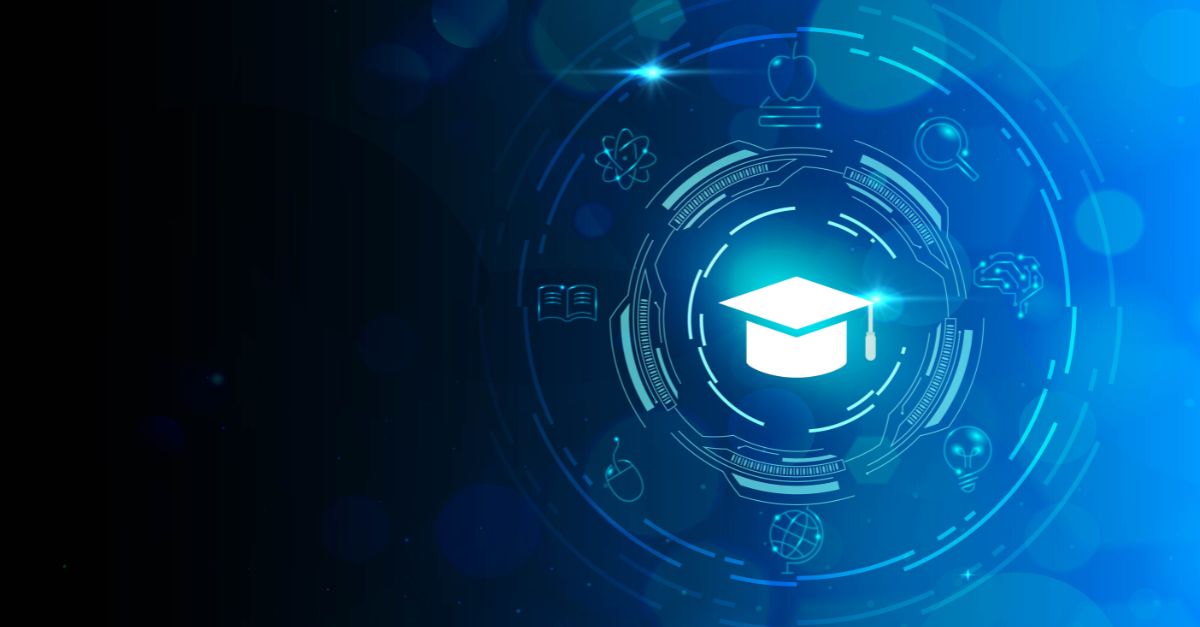The education sector is undergoing a significant transformation. Following the events of recent years, education is moving online and becoming more accessible. With greater accessibility however, there can be greater risk of exposure to confidential data and documentation, in particular that of students. Maintaining the security of educational documents is critical, whether it be to protect the integrity of educational achievements through credentials, or to safeguard the privacy rights and confidential information of students. Through the use of digital signatures and seals, which are protected using Public Key Cryptography, confidential documents can be verified to be from the right people and assured not to be tampered with – and educational credentials can be assured as being genuine and issued by the relevant body.
Traditional methods of certification and verification are being replaced by more secure, efficient, and reliable digital solutions. These technologies not only enhance the security and authenticity of educational documents but also streamline administrative processes, making them essential tools for modern educational institutions moving into a digital space.
By implementing digital signatures, educational institutions can protect sensitive information, maintain the integrity of their documents, and build trust with students, faculty, and external stakeholders.
Enhancing Online Learning with Digital Signatures
The shift towards digital solutions has been driven by the need for greater security, efficiency, and convenience. Digital education has particularly seen a rise in prominence since the pandemic in 2020 and as a result is more accessible than ever, meaning students can learn from their early school years up to higher education with the benefits of online resources, classes, and all the flexibility that offers. With this, however, comes a need for more robust security measures to safeguard the privacy of students, and protect the integrity of the qualifications they earn.
Digital identity solutions like digital signatures offer numerous benefits over traditional methods. They provide a higher level of security, as digital signatures are difficult to forge and can be easily verified. Additionally, digital documents can be stored and transmitted electronically, reducing the risk of loss and making the verification process faster and more efficient.
Practical Applications of Digital Signatures in Education
Digital Signatures are already used in many ways in education, and there is only scope for expansion on its use cases. For example, digital credentials and degrees - electronic versions of traditional paper-based credentials – can be issued and verified using digital signatures and/or seals, as outlined by the regional regulatory body. For example, the European Commission requires eIDAS compliant signatures or seals on certificates to ensure their authenticity and integrity. Other applications include:
- Digital Transcripts: Securely issuing and verifying academic transcripts, making it easier for students to share their academic records with potential employers and other institutions.
- Student ID Cards: Issuing digital student ID cards that can be used for various purposes, such as accessing campus facilities and services.
- Attendance Records: Digital signatures can be used to verify attendance records for both students and faculty, ensuring accurate and tamper-proof documentation.
- Parental Consent Forms: Schools can use digital signatures to obtain parental consent for various activities, such as field trips or extracurricular programs, ensuring secure and verifiable authorization.
Examples of further applications can be seen in Japan, where digitised exam tickets have been successfully implemented to streamline the examination process, with plans to introduce this nationwide by 2027. These digital tickets are issued to students electronically and are verified using unique digital signatures. This reduces the administrative burden but perhaps more importantly enhances security by assuring that only registered ticket holders can access the exam. The success of this initiative highlights the potential for global adoption of similar technologies.
Benefits of Digital Signatures in Education
As educational institutions increasingly scale up digital solutions, robust security measures and streamlined administrative processes are needed. Digital signatures provide the necessary framework to ensure the integrity and authenticity of educational documents. Some of the benefits implementing digital signatures and seals in educational environments include:
- Security: Digital credentials are inherently more secure than their paper-based counterparts. They use cryptographic techniques to create a unique digital fingerprint for each document, making them extremely difficult to forge.
- Authenticity: The use of digital signatures allows for easy verification of documents by employers, educational institutions, and other stakeholders. This ensures that the credentials are genuine and have not been altered.
- Environmental Impact: By reducing the reliance on paper, digital signatures help lower the environmental footprint of educational institutions. The shift to digital documents reduces the need for printing, shipping, and storing paper records, contributing to more sustainable practices.
- Accessibility: Digital signatures make it easier for students and staff to access important documents from anywhere, at any time. This is particularly beneficial for remote learning environments and for students who may need to access their records while applying for jobs or further education.
Embracing a Digital Future
The adoption of digital signatures and seals is an important step in securing the increasingly digital education environment. Secure digital signatures and seals bolster the security and authenticity of educational documents and streamline administrative processes, making them indispensable for modern educational institutions. By leveraging digital identity solutions alongside the increasingly expansive digital platforms, educational institutions can ensure the integrity and authenticity of their documents, protect sensitive information, and build trust with their students.
As the education sector continues to evolve, and it inevitably becomes more digital, the adoption of digital security measures like trusted, secure digital signatures will be crucial in maintaining security, efficiency, and convenience, ultimately supporting a better environment for learning and a more protected environment for students.
Start securing your organizations documents with GlobalSign’s Digital Signature Solutions






